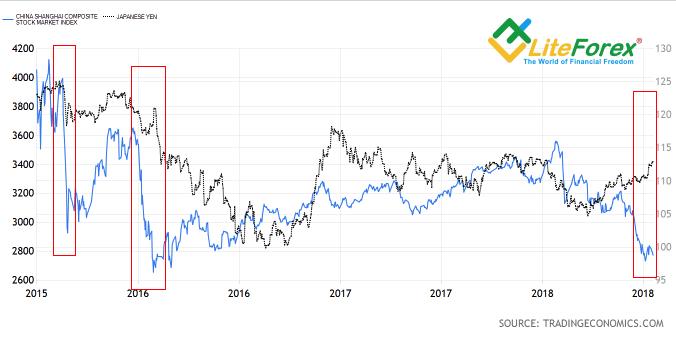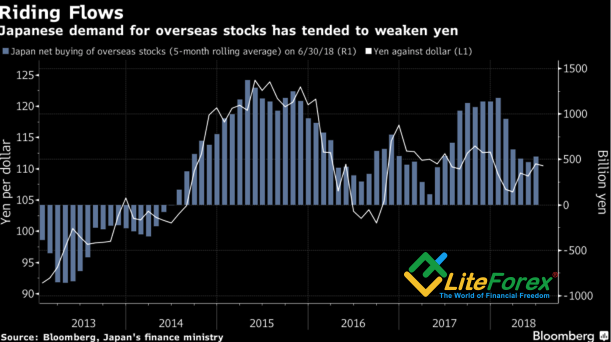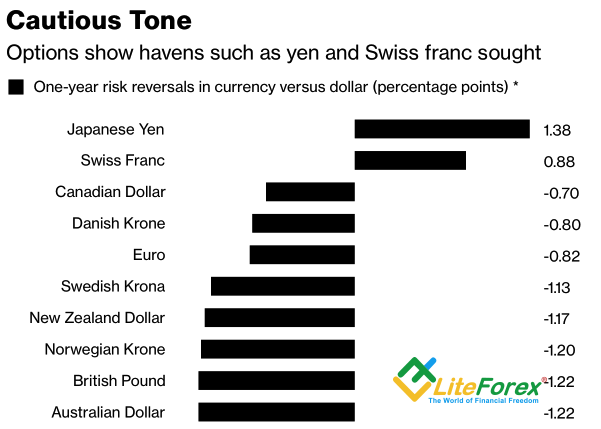The high demand of Japanese investors for US securities contributed to the growth of the USD/JPY to six-months highs.
In July, the Japanese yen lost all dividends received in the first half of the year and let the US dollar take the first position in the list of the best performers of the G10. It would seem that the constant escalation of trade conflicts, the growing risks of a slowdown in the Chinese economy and global GDP, as well as panic in the markets of developing countries and the destruction of carry trade, should maintain a strong demand for safe-haven assets and funding currencies. Unfortunately for USD/JPY bears, all the positive data is outweighed by the factor of capital flight from the Land of the Rising Sun.
The slowdown of China's economy to 6.7% in the second quarter before the effect of US import duties on it contributes to the fall of the Shanghai Composite and the weakening of the yuan. These factors have faithfully served the yen in the past. In August 2015 and January 2016, the Japanese yen was strengthened against the backdrop of a fall in the stock market indexes of China. At present, everything has turned upside down: Shanghai Composite is declining, the USD/JPY is growing. 
Source: Trading Economics.
The reasons for this lies in the multidirectional dynamics of the US and Chinese stock markets, reflecting divergence in the economic growth of the two countries. Unlike China, the US is gaining momentum and, quite possibly, under the influence of a fiscal stimulus, it accelerated to 4.5% in the second quarter. This circumstance allows Bloomberg experts to optimistically assess the outlook for US stock indices. In their opinion, the expected profit of the issuers included in the S&P 500 calculation base will increase by 27% within the next 12 months, while according to their European counterparts, by 12%, the Japanese, by 6%.
In such a situation, the residents of the Land of the Rising Sun have nothing to do but move their capital to the States. Since late March, Japanese investors were net buyers of foreign securities, and by the end of the week on June 29, their activity reached a mark of ¥ 985 billion ($8.7 billion). The world's largest pension fund GPIF was an especially active buyer of the foreign assets. It increased the share of foreign stock in its portfolio from ¥162 trillion to 24%. This is approximately the same as the domestic equity securities.
Source: Bloomberg.
So did the yen, which is usually insensitive to trade wars and risks of slowing Chinese and the global economies, lose its safe-haven status? No way! According to the reversal risks on the futures market, only the demand for call options compared to put options for the Japanese yen and Swiss franc is higher than that of the dollar .
Source: Bloomberg.
In my opinion, the USD/JPY may continue its rally in the event of an upward trend in the S&P 500. The bullish conjuncture of the US stock market will continue as long as investors have the hope of retaining the momentum of the US economy and belief in the slow normalization of the monetary policy by the Fed. Correction of the stock index will increase the risks of the pair's rollback in case of a breakthrough of 112.2.
